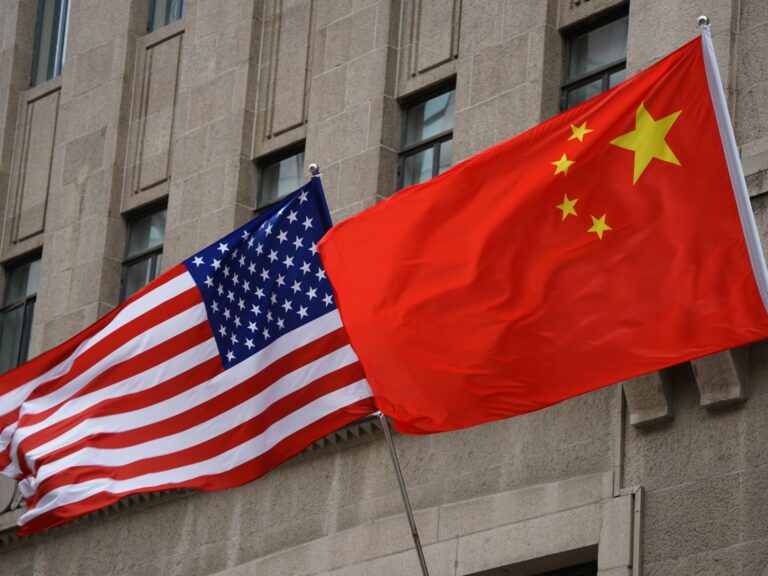The United States has told its allies that it is considering imposing the toughest trade restrictions if companies continue to give China access to advanced semiconductor technology.
Wall Street’s semiconductor index lost more than $480 billion in market capitalization on Wednesday, heading for its worst close since 2022, after reports that the U.S. is considering tightening export controls on advanced semiconductor technology to China.
Semiconductor stocks further sold off after Republican presidential candidate Donald Trump said Taiwan, a key manufacturing base, should pay for the United States’ defense costs.
The United States has told its allies that it is considering imposing the toughest trade restrictions if companies continue to give China access to advanced semiconductor technology, Bloomberg News reported on Tuesday.
Dutch chip-making equipment maker ASML Holdings’ U.S.-listed shares fell 11 percent following the report, even though the company reported better-than-expected second-quarter profit.
AI giant Nvidia fell nearly 7%, shedding more than $200 billion in its market capitalization.
Smaller rival AMD fell 8%. Qualcomm, Micron, Broadcom and Arm all fell more than 5%.
But companies with chip manufacturing operations in the U.S. rose, with Intel Corp., GlobalFoundries Inc. and Texas Instruments Inc. all rising between 0.3% and 8.5%. Some analysts believe Intel could benefit from geopolitical tensions because it is building several factories in the U.S.
“Any market reaction will likely be short-lived as the fundamental forces driving the market have not changed. Certainly, there will be some tightening of U.S. restrictions on shipments to China regardless of the outcome of the U.S. election, but they have been in place for some time already,” said Bob O’Donnell, principal analyst at TECHnalysis Research.
The Biden administration has moved aggressively to limit China’s access to cutting-edge chip technology, including sweeping regulations issued in October to restrict exports of AI processors designed by companies such as Nvidia.
The restrictions have hurt sales to China for U.S. chipmakers. Nvidia’s revenue from China accounted for about 18% of its total in the quarter ended April 28, down from 66% in the same period a year ago.
Former U.S. President Donald Trump told Bloomberg Businessweek that the U.S. has given Taiwan nothing and that it should pay for its defense, sending U.S.-listed shares of Taiwan’s TSMC, the world’s largest contract chipmaker, down 6%.
Taiwan plays a huge role in the global semiconductor supply chain and analysts have warned that any conflict over it could disrupt the global economy.
The Philadelphia Semiconductor Index fell more than 5% in afternoon trading, on track for its biggest one-day drop since October 2022.
The index is also expected to rise 32% in 2024 thanks to the AI boom, outperforming the S&P 500’s 17% gain.
Domestic semiconductor manufacturers benefit
Intel has been investing heavily to regain the manufacturing advantage it lost to TSMC, and the company is also one of the biggest beneficiaries of the U.S. semiconductor bill signed by President Joe Biden in August 2022, receiving $52.7 billion in subsidies.
Several policy experts said that even if Trump returns to power, the U.S. government’s focus on semiconductors is likely to continue, including by tightening export controls on China and supporting domestic semiconductor manufacturers such as Intel.
But he warned that doubts remain about Intel’s ability to revive its manufacturing business, with its foundry division posting an operating loss of $2.47 billion in the quarter ended March 30.
“President Trump is likely not only to continue but to intensify export restrictions,” said Michael Sobolik, a senior fellow at the Foreign Policy Council.
“During his first administration, he implemented numerous semiconductor export controls, including the strong ‘foreign direct product rule’ that limited foreign countries’ access to Huawei’s semiconductors.”

